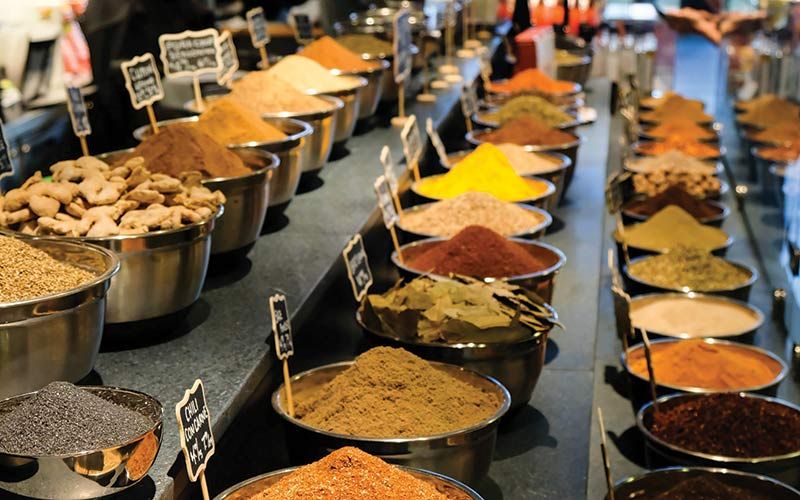Spicing Up Extra Virgin Olive Oil

Moroccan cuisine is one of the most ancestral and sophisticated cuisines in the world. The mixing and proportions of spices in the Moroccan cuisine evolved and got refined through centuries to become an art in itself. The variety and tastes of the spices are drafted from the Berber, Mediterranean, Andalusian, and sub-Saharan regions. The spices of Moroccan cuisine have also been said to protect against acute and chronic diseases. Organic spices can have antioxidant, anti-inflammatory, antitumorigenic, anticarcinogenic, and glucose and cholesterol-lowering benefits.
The variety goes from basic spices like smoked paprika and rosemary to exotic spices like Ras el Hanout, meaning “top of the shelf,” which is a Moroccan mix of thirteen different spices to use on lamb, tagines, lentil soup, and countless other traditional dishes. A most popular spice is called Za’atar and is a Lebanese mix which can be used on most dishes, including a simple sprinkle on pita bread with Extra Virgin Olive Oil to be toasted in the oven. Another popular product, Afghani Saffron, makes miracles on rice dishes or stews.
Alongside genuine Moroccan EVOO, these spices can make delicious Balsamic Vinegars aged 12-50 years and an impressive assortment of oils and spices from a multitude of origins.
In summary, food needs Extra Virgin Olive Oil and spices to really take it to the next level of flavor. Essex Olive & Spice, who recently celebrated their 5th anniversary, have become successful in this field.
Olive oil is an essential pillar of cooking, and is often complimented by its pairing with unique spices. It is the key ingredient to Moroccan cooking and dishes of other cultures all across the globe!
Written by: Eleni Finkelstein









